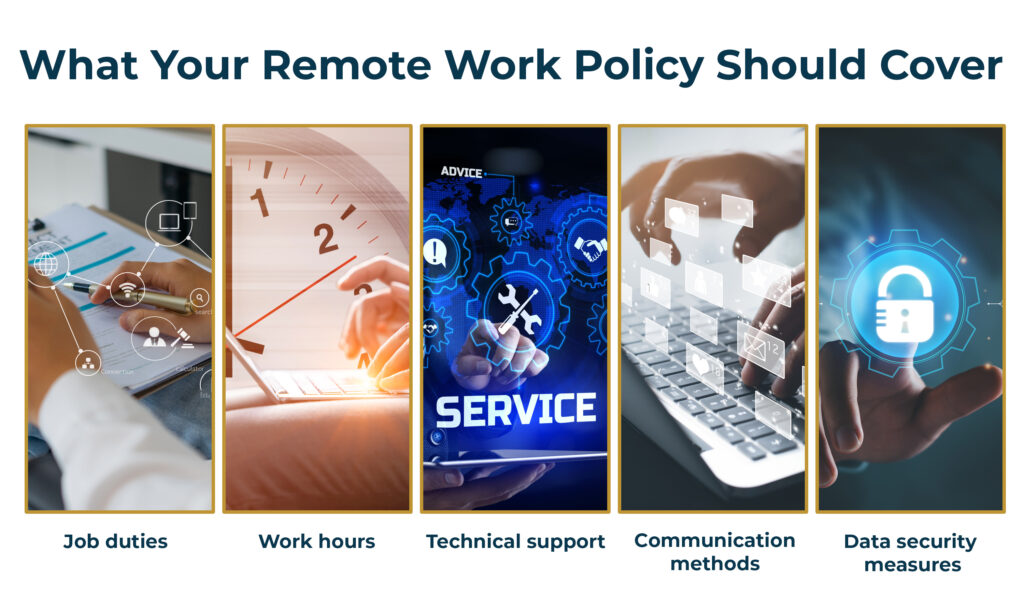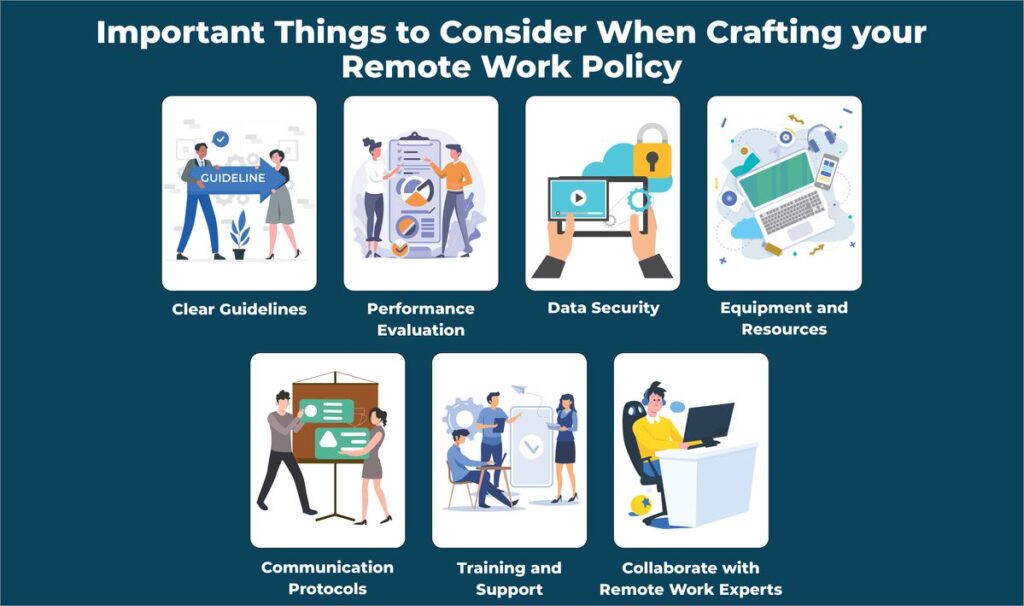
Remote work is not just an option anymore. It has evolved into a full-blown revolution, especially since the pandemic hit. Companies worldwide have jumped on the bandwagon faster than you can say “Zoom meeting,” offering everything from hybrid arrangements to full-time remote setups for their employees.
While working from home has its perks for both employers and employees, there are a few downsides. Business owners and remote staff may still experience loneliness and isolation, lack of boundaries, and miscommunication even though they benefit from the remote work setup. In the Philippines, several companies with work-from-home arrangements thrived.
What sets them apart is a well-defined remote work policy.
This article will delve into the key aspects of creating a successful remote work policy tailored to your business needs.
What is Remote Work?
Remote work allows employees to work from anywhere, creating a flexible and productive atmosphere. This structure provides numerous advantages.
For employers
- Access to a Diverse Talent Pool
- Round-the-Clock Operations
- Cost Savings on Office Space
- Increased Productivity
- Business Continuity
For employees
- Better Work-Life Balance
- Greater Flexibility
- More Freedom, Creativity, and Autonomy
- Increased Productivity and Performance
Traditional businesses may gain from increased flexibility, productivity, and cost-effectiveness by adopting remote work and global outsourcing. Adopting this strategy calls for thoughtful preparation and strategic execution. One of the essential steps is to develop a clear remote work policy.
Understanding Remote Work Policy
A remote work policy is a formal document that defines the terms and conditions of remote work arrangements within a business.
In terms of work hours, communication, performance reviews, data security, and other important parts of remote work, it sets clear expectations.

Importance of a Formal Remote Work Policy
Businesses need a written remote work policy to ensure productivity, employee satisfaction, and regulatory compliance.
A well-written policy supports the management of remote teams, the promotion of a trusting and collaborative work environment, and the reduction of hazards related to remote work.
Improved productivity and staff retention can be the result of an open policy that encourages remote work and shows that the company cares about its workers’ health and work-life balance.
Additionally, since employees’ attitudes towards remote work have changed post-COVID-19, remote work policies have grown in significance. When given the chance, 87% of people choose flexible work arrangements, making remote employment more of a norm than an exception.
Key Considerations for Developing a Remote Work Policy
Several key considerations should be taken into account when creating a remote work policy for your business. This ensures its effectiveness and relevance.
Here are some considerations include:

- Clear Guidelines: Define expectations regarding work hours, availability, communication channels, and deliverables.
- Performance Evaluation: Establish metrics and mechanisms for evaluating remote employees’ performance and productivity.
- Data Security: Implement protocols to safeguard sensitive information and ensure compliance with data protection regulations.
- Equipment and Resources: Specify the provision of necessary tools, equipment, and resources for remote employees to perform their tasks efficiently.
- Communication Protocols: Outline communication norms, meeting schedules, and reporting mechanisms to maintain seamless collaboration within remote teams.
- Training and Support: Provide training, resources, and support to help remote employees adapt to remote work practices and overcome challenges effectively.
Addressing these points in your remote work policy can create a robust framework that promotes productivity, engagement, and success in remote work environments.
Collaborate with Remote Work Experts
A successful remote work policy matters for companies that want to leverage remote work’s benefits while maintaining productivity and efficiency.
By collaborating with remote work companies, you can create a remote work policy that fosters a good culture, enhances performance, and helps your organization succeed.
Looking for a reliable partner in developing your remote work policy is as crucial as developing your remote work policy.
The way businesses work in the Asia-Pacific area has changed a lot in the last few years. One of the most important changes is the rise of working from home. The Asia-Pacific market has moved toward remote work because of a number of factors, including better technology, changing employee preferences, and the need for business continuity in the face of global problems.
Thanks to the fast-paced technological shift, companies have a more seamless team up when it comes to tapping remote work in the Philippines, Vietnam, Thailand, and other APAC countries.
Partner with iSWerk for Hassle-free Remote Policy Setup

If your business needs help creating a remote work policy, iSWerk can assist you. iSWerk provides as expert team who knows the ins and outs of remote work in the Philippines and can develop a plan that fits your business perfectly. This plan will help your business run more smoothly and take advantage of the benefits of remote work.
When you partner with iSWerk, we guarantee that switching to working from home is easy. This will give your business an advantage in the digital world.
